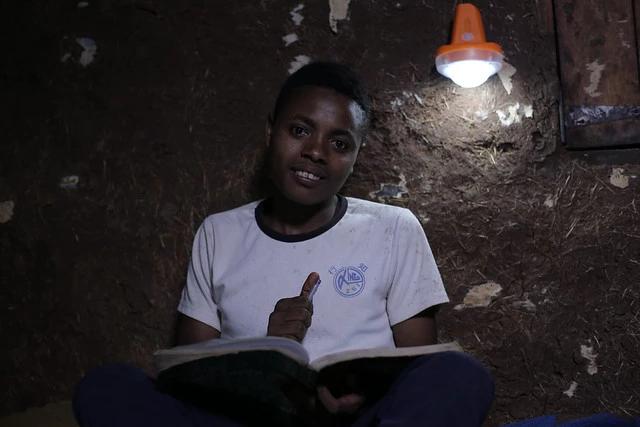
The off-grid solar industry is only ten years old, yet even at this early stage it has already delivered quality energy services to hundreds of millions of people – something traditional electricity utilities had been unable or unwilling to serve.
Revolutionizing Electrification
- In 2009 off-grid solar was almost completely unknown as Lighting Africa kicked off in Kenya. Today the industry is thriving across sub-Saharan Africa, Asia, and beyond.
- In 2010 only six products met Lighting Global Quality Standards –today nearly 40 million units of over 150 quality verified products have been sold. A gray market of less reliable products also flourishes alongside.
- The off-grid energy sector has been succeeding primarily on commercial terms, with over $500 million in investment pouring into the sector in the past two years.
- Electrification in Sub-Saharan Africa is now out-pacing population growth – which is largely attributed to off-grid solar expansion.
The question remains: is it possible that this rapid progress has created unrealistic expectations for a smooth path to universal electrification, that no 10-year old industry can deliver?
Market Evolution brings Healthy Competition
One of the signs of a healthy dynamic is increasing levels of competition. These competitive forces stimulate innovation, efficiency, and reach, strengthening an industry’s long-term viability and building market resilience.
This same competition means there will be winners and losers. The story of the older and more mature solar PV manufacturing sector provides context for the younger off-grid solar industry: In 2012 alone, at the peak of the solar PV manufacturing industry’s shake-out period, some 40 companies closed operations and another seven companies were absorbed or acquired by other companies in the sector. And yet, today, that industry continues its upward path and has been the forebearer and enabler of a global energy revolution in the electricity sector.
Consolidation is also a normal part of an industry’s development – an important contributor to its long-term viability. From time to time pioneers and entrepreneurs, even those long devoted to their mission, must still struggle, something painful to see. We should collectively embrace this process and learn from each company’s experience.
What We’ve Learned
The attractiveness of the off-grid solar sector has always been its ability to deliver social impact in a financially viable way. These returns have motivated impact investors and DFIs to support early stages of the market’s development. In the past two years, more commercial investors have entered the market, driven by prospects of financial returns. Meanwhile, governments and development-focused investors have been increasing pressure on companies to reach faster, farther and deeper into the markets. The result has often been competing pressures to deliver both profitability and social impact in unrealistic timeframes; such promises frequently belie the early-stage nature of these markets.
Recognizing our shared interest in long-term resilience, we need to apply a dose of realism in the pursuit of our objectives. Social objectives must be considered in light of unit economics and pricing constraints, while speed of growth targets, will need to realistically reflect real-time learnings from the market and allow for refinements. The business models that have enabled the off-grid solar industry to reach previously unbanked, remote customers need time to mature before they can be stress-tested in an accelerator. It’s a steep learning curve for these companies, but developing a firmer focus- on operational efficiency, an exceptional grasp of the nuances of local markets, adaptive management, and clear communication- will help the industry to navigate the challenges of next-stage growth.
What is key is investor support for management that targets fundamental performance over a singular focus on growth.. Development-focused investors can engage with governments to build the enabling environment that can reduce the costs and risks of doing business, all the while engaging local financial institutions to establish a sustainable source of local currency. The Governments and their development partners can intelligently use public finance to support the industry to reach remote markets that cannot be served on a fully commercial basis.
Lighting Global
The World Bank Group’s Lighting Global program stood by the industry in its infancy, and is growing alongside it through its adolescence. We are constantly adapting to address the needs of both the industry and the investment community of this maturing market. Our newest tools support the drive to profitability, help mobilize commercial investment at scale, encourage companies to improve their operations and encourage the adoption of industry-wide key performance indicators.
Motivated by the progress of the industry, governments across Asia and Africa have increasingly engaged us and other development partners to support private sector partnerships in delivering energy at scale. Lighting Global works with these governments to support the enabling framework that enables sustainable market development.
As business models and products evolve in both reach and service, the experience of companies across the industry will vary with a blend of successes and failures. This collective experience will evolve, rich in lessons; some growing-pains of a maturing industry are inevitable. But with appropriate vision and support from investors and governments, the off-grid solar industry can exhibit healthy growth, while delivering on behalf of the poorest and most remote populations.



Join the Conversation